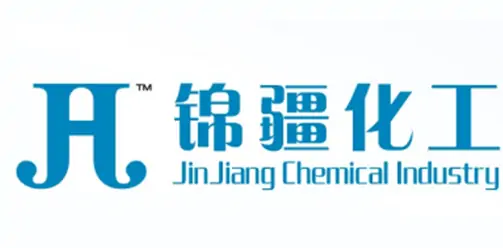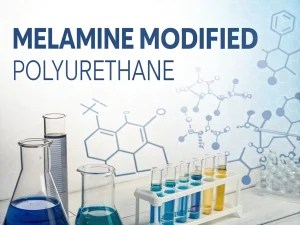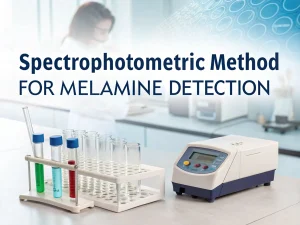
Study on the effect of melamine on the growth of streptococcus thermophilus
Tech Blog Study on the effect of melamine on the growth of Streptococcus thermophilus Streptococcus thermophilus is a key lactic acid bacterium widely used in

If you have recently purchased a new BS6 diesel vehicle in India, whether it is an SUV, truck, or bus, you may have noticed a new filling port, typically equipped with a blue lid and accompanied by a new dashboard warning light. This is all related to a description commonly known as “urea for BS6”.
But what is it? Why did you take your BS6 diesel car? What will happen if it’s used up?
This ultimate guide will answer all your questions about this key liquid-officially known as Diesel Exhaust Fluid (DEF).
The answer is India’s strict Bharat Stage 6 (BS6) emission standards. To meet these standards, modern diesel engines must significantly reduce their emissions of nitrogen oxides (NOx), a pollutant.
If there is no urea, the SCR system cannot neutralize NOₓ, and the vehicle will not meet BS6 standards. The dashboard will trigger a malfunction light and eventually enter “limp mode” (limiting power output to reduce emissions).
For BS6 vehicles, urea is not an optional accessory, but a necessity that is equally important as diesel. Failing to add urea while driving a BS6 diesel vehicle may result in serious damage to the SCR system and incur regulatory penalties.
Its working principle is as follows:
1. Spray: DEF is precisely sprayed into the hot exhaust stream from its dedicated storage tank.
2. Conversion: At high temperatures, the elements in DEF are converted to ammonia (NH3).
3. Neutralization: Under the action of the SCR catalyst, the battery reacts with harmful nitrogen oxides (NOx).
4. Result: This chemical reaction converts over 90% of harmful NOx into two harmless substances – oxygen (N2) and water (H2O), both of which are the main components of breathing air.
In short, urea for BS6 is the key “fuel” for making your diesel vehicle environmentally compliant.
Not all urea is suitable for the BS6 SCR system. Using unqualified urea may damage the SCR catalyst, clog the injector, and render the vehicle warranty invalid.
The following are the requirements that must be met:
The urea used in BS6 vehicles is not in dry powder form, but a ready-made solution consisting of 32.5% urea and 67.5% deionized water (this ratio is fixed by ISO 22241). The setting of this concentration is based on two key reasons:
Best NOₓ reduction effect: 32.5% urea concentration can release just enough ammonia gas to neutralize NOₓ under BS6 standard; Low concentration (such as 25%) can lead to insufficient ammonia gas, while high concentration (such as 40%) can cause unreacted urea to crystallize.
Climate adaptability: 32.5% urea solution has a freezing point of -11 ℃, suitable for India’s diverse climate (from winter in the Himalayas to tropical summer). The concentration remains unchanged after thawing (the DEF tank of modern BS6 vehicles is equipped with a heater to prevent solution freezing in cold regions).
When selecting urea for BS6 vehicles, it is essential to choose DEF (commonly referred to as AdBlue) that is certified by a reputable brand and meets ISO 22241 standards. Please pay attention to the following:
ISO 22241 labeling on packaging;
Famous brands (such as Indian Petroleum DEF, Bharat Petroleum AdBlue, Shell DEF, or specialized DEF for engine manufacturers such as Tata Motors);
Sealed packaging (to avoid dust or tap water pollution);
Avoid purchasing “local bulk” or unbranded DEF products, as they often use tap water instead of deionized water or low-purity urea, which can damage the BS6 SCR system.
If the DEF tank of a BS6 vehicle is empty, the engine control unit (ECU) will first trigger the warning light; If driving continues, the system will:
Limit engine power to 50% (limp mode);
Record the fault code, which can only be reset by the dealer.
In extreme cases, the SCR system may be damaged due to overheating or unreacted NO.
Solution: Once the DEF low-level warning appears, immediately refill.
Adding diesel to the DEF tank: Diesel will completely damage the SCR catalyst and injector (with high repair costs);
Add tap water to the DEF storage tank: The minerals contained in tap water can contaminate urea, leading to crystallization and failure of the SCR system.
Solution: Use only ISO certified DEF. If other liquids are mistakenly added, immediately contact the dealer and do not start the engine.
The shelf life of DEF is 1-2 years (it should be stored in a cool and dry environment, away from direct sunlight). Expired DEF will degrade and lose its ability to neutralize NO; Contaminated DEF (such as dirty filling ports) can clog the SCR system.
Solution: Check the shelf life on the DEF packaging; Keep the DEF tank filling port clean and sealed.
BS6 vehicles are equipped with dedicated warning lights for SCR system faults (such as insufficient DEF, abnormal urea concentration, catalyst failure, etc.). Ignoring these warning lights can lead to more serious damage and increase repair costs.
Solution: If the SCR warning light is on, go to an authorized service center within 50-100 kilometers for maintenance.
Gas stations: Most large gas stations (such as Indian Petroleum, Bharat Petroleum, Hindustan Petroleum, and Shell) sell 5-liter, 10-liter, and 20-liter packs of DEF, and some also have truck-specific DEF filling pumps;
Authorized dealers: Service centers of vehicle OEMs (Tata, Mahindra, Ashok Leyland, Toyota) sell original factory-specific DEF (ensuring compatibility);
Online platforms: E-commerce platforms (Amazon India, Flipkart, BigHaat) sell DEF brands suitable for passenger cars and light commercial vehicles (official sellers must be selected to avoid counterfeit goods).
Urea is the ‘unsung hero’ of BS6 diesel vehicles. Without urea, vehicles cannot meet India’s strict NOₓ emission limits. Using unqualified urea will result in high maintenance costs and regulatory risks for BS6 vehicles. Simply choose ISO 22241 certified DEF (32.5% high-purity urea + deionized water), add it in a timely manner, and avoid common misconceptions to ensure that BS6 vehicles always operate in compliance and efficiently, thereby extending their service life.
For BS6 diesel car owners, remembering one key rule can save time and money: treat urea as diesel – never compromise on quality, and never allow the tank to run empty.

Tech Blog Study on the effect of melamine on the growth of Streptococcus thermophilus Streptococcus thermophilus is a key lactic acid bacterium widely used in

Tech Blog Melamine Modified Polyurethane Polyurethane (PU) is a versatile polymer celebrated for its excellent wear resistance, oil resistance, chemical stability, and strong adhesion to

Tech Blog Spectrophotometric Method for Melamine Detection The spectrophotometric method for melamine detection is based on the complexation reaction between melamine powder, formaldehyde, and carbonyl

JINGJIANG MELAMINE POWDER
© JINJIANG MELAMINE